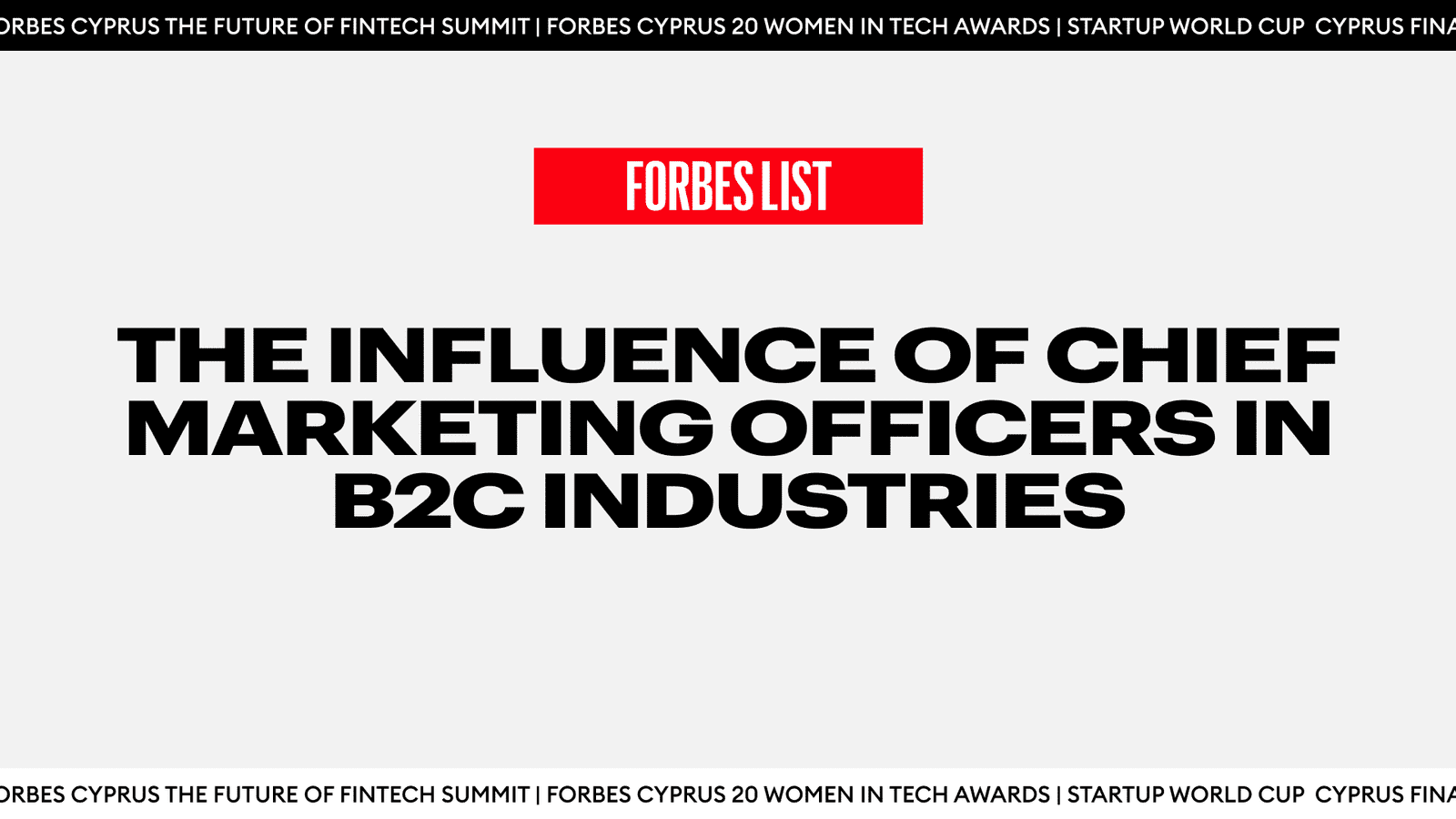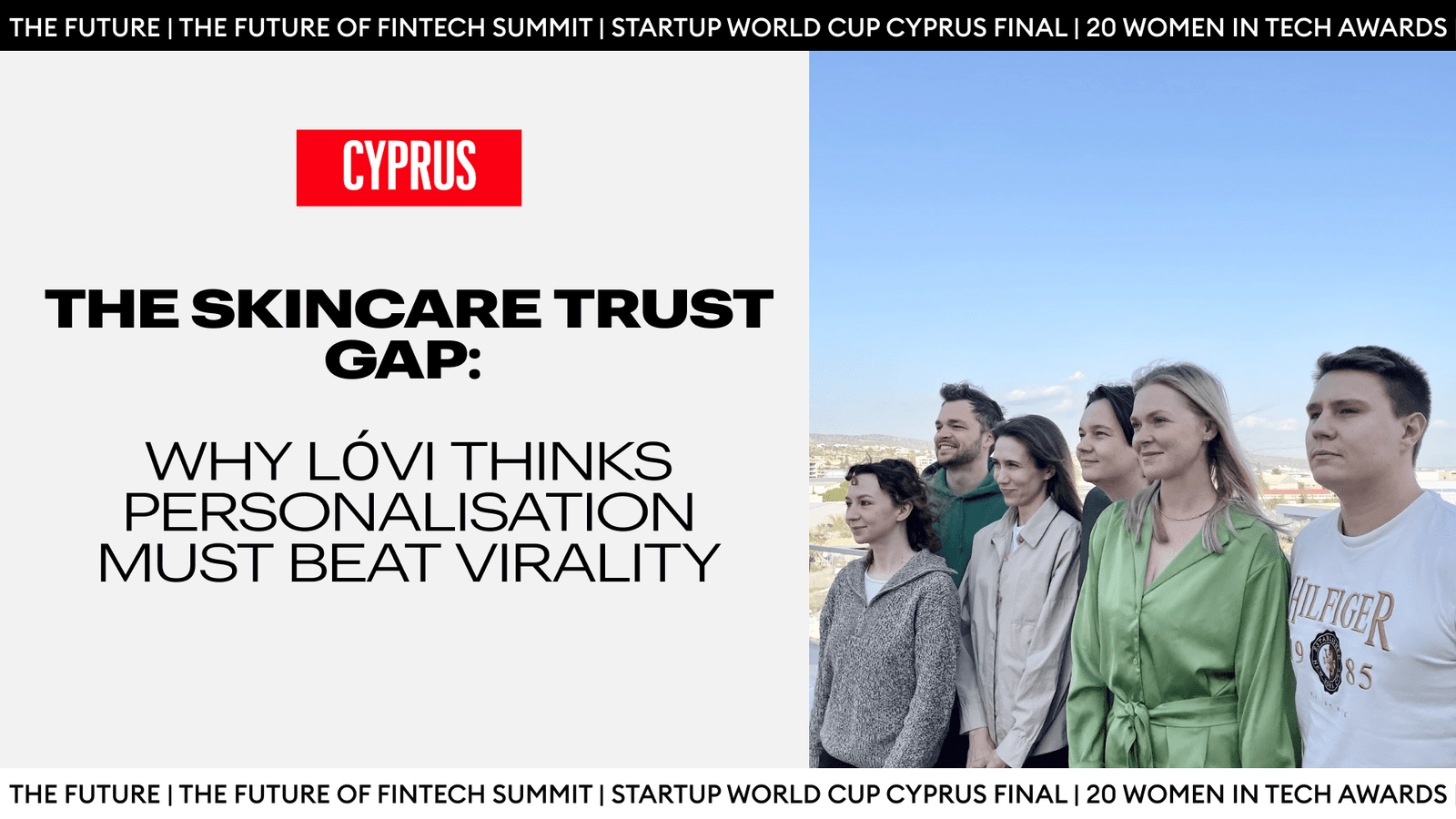These leaders not only shape a brand’s image but also drive innovation, consumer engagement, and business growth, are proudly won the role of Chief Marketing Officers (CMOs) evolving the business-to-consumer (B2C) industries.
The 2024 Forbes World’s Most Influential CMOs list highlights the paramount importance of these roles across various sectors. This article delves into the key insights from the Forbes report, providing an authoritative analysis of how CMOs are redefining influence in B2C industries.
Follow THE FUTURE on LinkedIn, Facebook, Instagram, X and Telegram
Dimensions of Influence
The Forbes report, in collaboration with Sprinklr, evaluates CMOs based on the following dimensions: Marketing Attention, CMO Attention, Sentiment & Salience, and Brand Awareness & Sentiment. These dimensions are critical in understanding the multifaceted impact of CMOs in the modern business landscape.
Marketing Attention
Marketing attention is a measure of how effectively a brand’s marketing efforts capture media coverage. The report reveals significant disparities across industries. For instance, L’Oréal, under the leadership of Asmita Dubey, ranks in the top 7% of brands for marketing coverage, showcasing the high efficacy of their marketing strategies. This reflects the brand’s consistent and innovative marketing campaigns, which resonate well with both consumers and the media.
In contrast, the automotive industry, represented by brands like Audi and Jaguar Land Rover, also demonstrates substantial media presence, though not as pronounced as consumer-packaged goods (CPG) or media, entertainment, and sports sectors. Audi, led by Hildegard Wortmann, excels in drawing media attention, positioning itself as a thought leader in automotive marketing. This strategic focus on media visibility helps in maintaining Audi’s prestige and consumer interest amidst a highly competitive market.
CMO Attention, Sentiment & Salience
This dimension evaluates the individual influence of CMOs through their media and online presence. Top CMOs garner more than six times the media attention compared to their peers. Arnaud Carrez of Cartier and Asad Ayaz of The Walt Disney Company exemplify this, with Carrez ranking in the top 15% and Ayaz in the top 5% of CMOs based on media mentions. This metric underscores the importance of personal branding and strategic communication in amplifying a CMO’s influence.
Carrez’s approach at Cartier involves a blend of tradition and innovation, ensuring that the brand remains relevant in the luxury sector. Meanwhile, Ayaz at Disney focuses on leveraging the company’s rich storytelling heritage to create compelling marketing narratives that captivate global audiences. Both examples illustrate how effective media engagement and strategic communication can significantly enhance a CMO’s and their brand’s influence.
Brand Awareness & Sentiment
Brand awareness and sentiment measure the broader impact of a CMO’s efforts on brand perception and consumer engagement. The report indicates that brands led by the most influential CMOs have significantly higher social media followers. For instance, Calvin Klein, under Jonathan Bottomley, enjoys more followers per network than 89% of brands. This dimension highlights the direct correlation between a CMO’s strategic initiatives and enhanced brand visibility and consumer loyalty.
Bottomley’s strategy at Calvin Klein involves tapping into contemporary culture and trends, which has successfully resonated with a younger demographic. This approach not only increases brand visibility but also strengthens consumer loyalty by aligning the brand with current societal values and trends.
Industry-Specific Insights
The Forbes report provides a granular analysis across seven B2C industries: Apparel & Footwear, Automotive, Consumer Packaged Goods, Financial Services, Media, Entertainment & Sports, Retail, and Technology. Each sector exhibits unique challenges and opportunities for CMOs.
Apparel & Footwear
In the apparel and footwear sector, the influence of CMOs like Heidi Cooley of Crocs is profound. Cooley’s media coverage surpasses 94% of all CMOs, illustrating the high visibility and impact of her marketing campaigns. Under her leadership, Crocs has successfully leveraged innovative marketing strategies, including collaborations with popular culture icons and strategic use of social media, to rejuvenate the brand’s image and appeal to a broader audience.
Brands in this sector, led by top CMOs, achieve 40% more social network followers, indicating a strong consumer engagement driven by effective marketing strategies. Chris Davis at New Balance is another exemplary leader whose efforts have positioned the brand in the top third of apparel and footwear brands in terms of social media followers. Davis’s focus on community engagement and authentic storytelling has played a crucial role in this achievement.
Automotive
The automotive industry also sees substantial influence from its top CMOs. Hildegard Wortmann of Audi and Detlev von Platen of Porsche lead in garnering media attention, with Wortmann’s efforts being highlighted more frequently than 80% of global brands. Wortmann’s strategy at Audi involves a blend of technological innovation and sustainability, positioning the brand as a leader in the evolving automotive landscape.
Von Platen’s approach at Porsche focuses on maintaining the brand’s legacy while incorporating modern marketing techniques to attract a younger demographic. These strategies ensure that Porsche remains at the forefront of luxury automotive brands. The emphasis on media presence reflects the industry’s focus on maintaining brand prestige and consumer interest through strategic marketing.
Consumer Packaged Goods (CPG)
The CPG sector stands out for its high media attention and social media engagement. CMOs like Manuel Arroyo of Coca-Cola and Esi Eggleston Bracey of Unilever lead initiatives that attract extensive media coverage and consumer engagement. Arroyo’s leadership has propelled Coca-Cola’s social media followers to levels exceeding 98% of global brands, showcasing the sector’s dominance in leveraging digital platforms for brand building.
Bracey’s approach at Unilever involves a strong emphasis on sustainability and social responsibility, aligning the brand with contemporary consumer values. This strategy not only enhances brand perception but also drives consumer loyalty and engagement. The sector’s CMOs excel in creating compelling narratives that resonate with a diverse audience, ensuring sustained media attention and consumer interest.
Financial Services
In financial services, CMOs play a crucial role in navigating a complex regulatory landscape while maintaining consumer trust and engagement. Frank Cooper III of Visa exemplifies this, with Visa ranking in the top 15% of brands for social media followers. Cooper’s strategy involves leveraging Visa’s global presence to create inclusive and innovative marketing campaigns that resonate with a broad audience.
Carla Zakhem-Hassan of JPMorgan Chase also demonstrates significant influence, with her efforts placing the brand in the top quarter of global brands in terms of media attention. Zakhem-Hassan’s approach focuses on transparency and strategic communication, which are pivotal in building and sustaining brand loyalty in the financial sector.
Media, Entertainment & Sports
The media, entertainment, and sports sectors exhibit the highest levels of media attention and social media following. CMOs like Tim Ellis of the NFL and Tammy Henault of the NBA are instrumental in driving their brands to the forefront of consumer attention. Ellis’s innovative campaigns at the NFL have significantly boosted the league’s media coverage, positioning it in the top 10% of global brands.
Henault’s leadership at the NBA has propelled the brand to the top 2% in terms of social media followers. Her strategy involves creating engaging and inclusive content that appeals to a global audience, ensuring sustained consumer interest and loyalty. The sector’s CMOs excel in leveraging the unique appeal of their brands to create compelling narratives that resonate with a diverse audience.
Retail
In retail, the influence of CMOs is marked by their ability to drive consumer engagement and brand loyalty through innovative marketing. Lisa Roath of Target exemplifies this, leading a team that has significantly grown Target’s social media following. Roath’s strategy involves a strong focus on customer experience and personalised marketing, which are crucial in a highly competitive market.
Linus Karlsson of IKEA also demonstrates significant influence, with IKEA ranking in the top 5% of brands in terms of media attention. Karlsson’s approach focuses on creative and innovative marketing campaigns that highlight the brand’s unique value proposition, driving consumer engagement and loyalty.
Technology
The technology sector, characterised by rapid innovation and intense competition, sees CMOs like Greg Joswiak of Apple leading the charge. Apple’s substantial social media following, ranking above 87% of brands, underscores the sector’s focus on leveraging digital platforms for brand visibility and consumer engagement. Joswiak’s strategy involves integrating Apple’s technological innovations with compelling marketing narratives that resonate with a global audience.
Andréa Mallard of Pinterest also exemplifies influential leadership in the tech sector. Mallard’s efforts have positioned Pinterest in the top 8% of brands for media attention, reflecting the effectiveness of her marketing strategies in driving brand visibility and consumer engagement. The sector’s CMOs are pivotal in communicating complex technological advancements in a manner that resonates with consumers.
Top 10 CMOs from the 2024 Forbes World’s Most Influential CMOs list:
- Marian Lee – Netflix
- Tariq Hassan – McDonald’s
- Frank Cooper III – Visa
- William White – Walmart
- Asmita Dubey – L’Oréal
- Greg Joswiak – Apple
- Marcel Marcondes – AB InBev
- Chris Davis – New Balance
- Tim Ellis – NFL
- Linus Karlsson – IKEA
See the full list HERE
The 2024 Forbes World’s Most Influential CMOs report provides a comprehensive analysis of the pivotal role CMOs play in driving brand success across various B2C industries. By evaluating CMOs on dimensions of marketing attention, personal influence, and brand awareness, the report underscores the multifaceted impact of these leaders. As the business landscape continues to evolve, the influence of CMOs will undoubtedly grow, shaping the future of marketing and consumer engagement.
This detailed examination not only highlights the achievements of the top CMOs but also provides valuable insights for aspiring marketing leaders and business professionals aiming to navigate the complexities of modern marketing. The report serves as a testament to the critical role of strategic leadership in driving brand success. It underscores the importance of continuous innovation and engagement in the ever-evolving B2C landscape.














